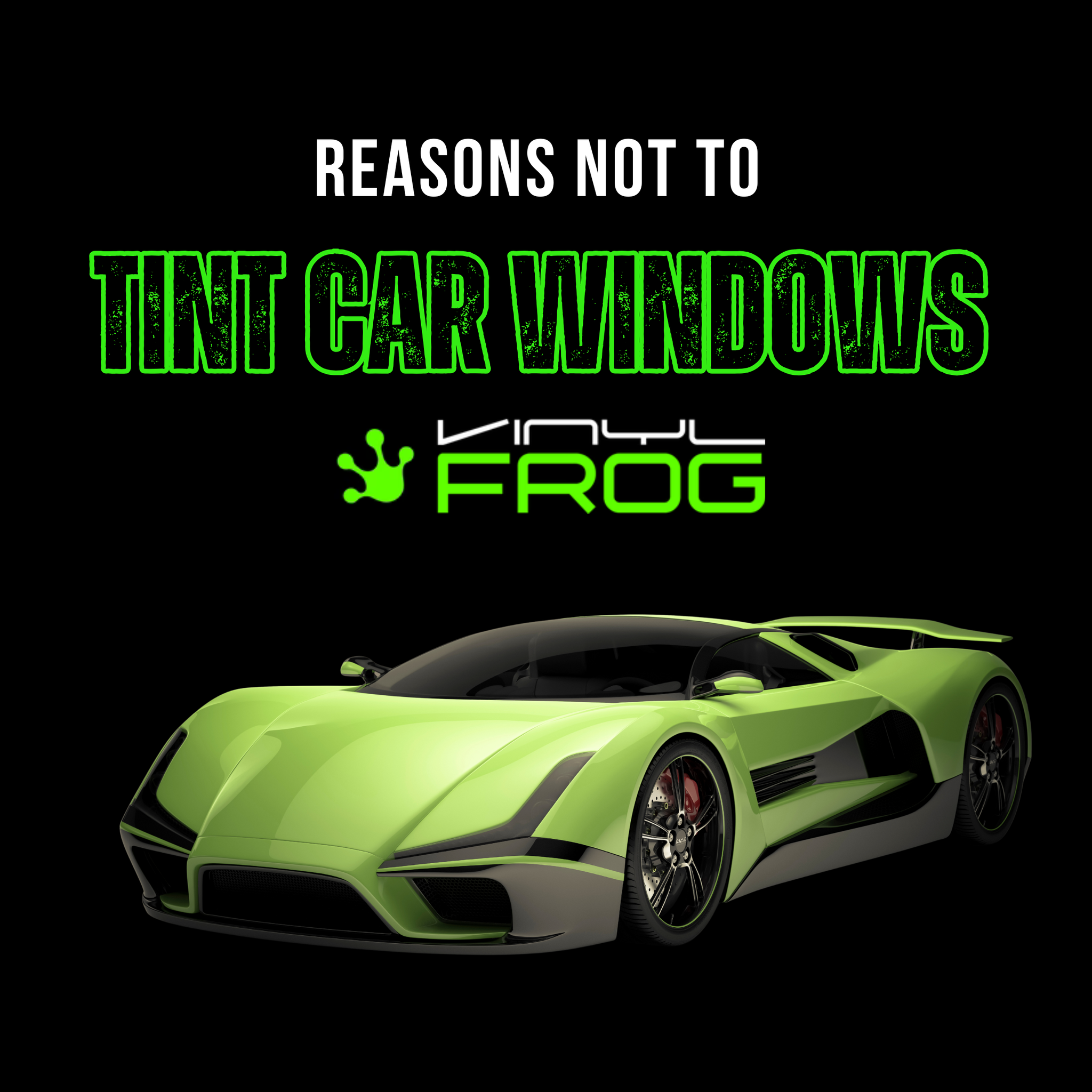Posted By Vinyl Frog On January 31, 2024
Window Tint Laws In Oklahoma

Window tinting has become a popular choice among car owners as it offers a blend of practical benefits and aesthetic appeal. However, it has to be regulated for safety on the road and states have legislated laws for the same. Hence Oklahoma tint laws establish the legal tint and reflectivity percentage, exemptions, and penalties.
VLT Interpretation In Oklahoma Tint Laws
The window tint laws in Oklahoma were enacted in 2005. The crucial aspect on which the regulation is based is the darkness of the tint. This is measured by the Visible Light Transmission (VLT) percentage.
For instance, a window tint with 70% VLT is not that dark. One can easily see through the window. Everything inside the car is visible and there isn’t much privacy. A 25% VLT tint, on the other hand, does not allow much light to pass through hence providing substantial privacy, It is quite a dark tint.
It is important to follow the legislation in this regard so that when the officer pulls you over, he should clearly see the inside of the car, both front and back, for safety.
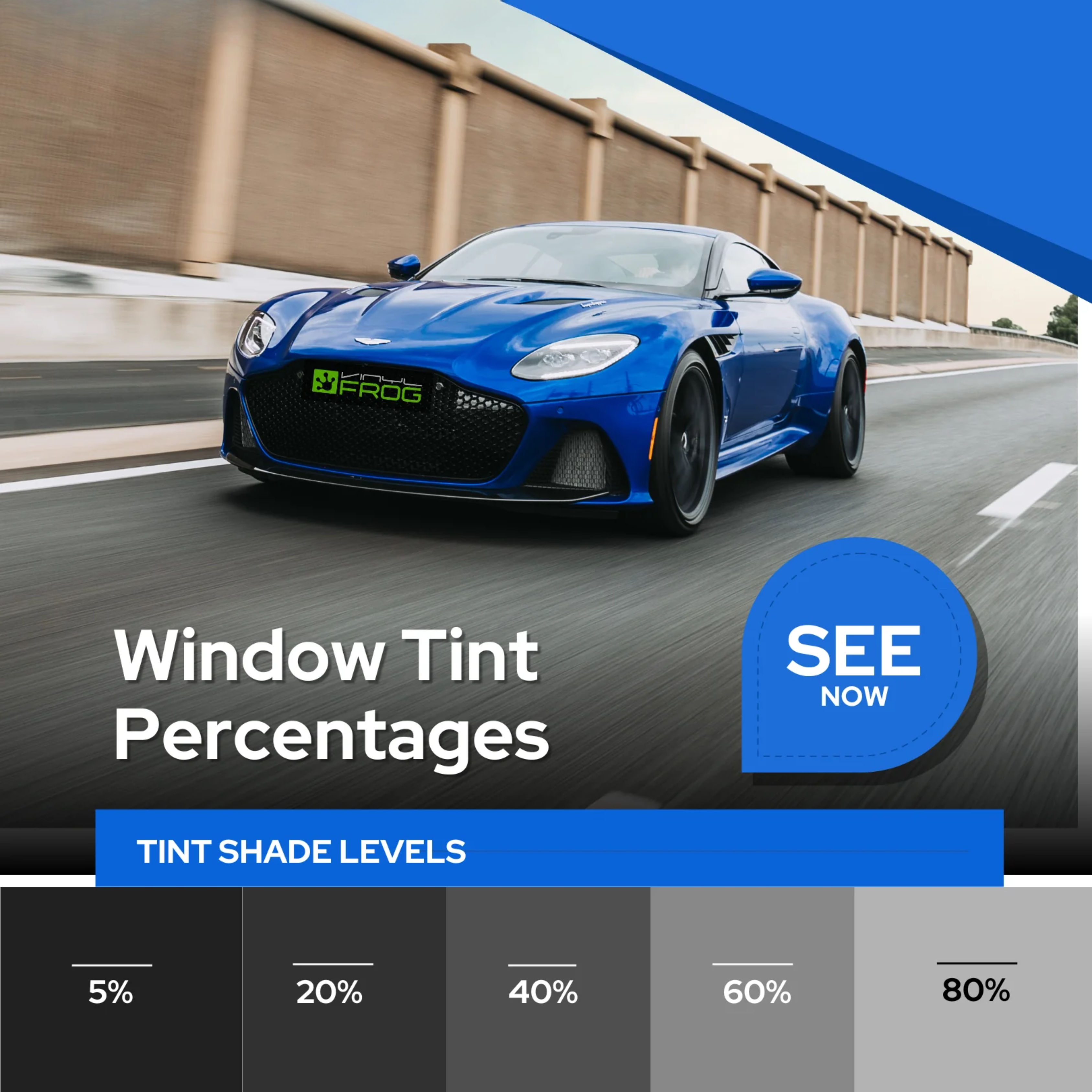
Window Tint Percentages
The Oklahoma Tint Law
As a general rule, it is not allowed to install anything on the windows of the vehicle that obstructs or reduces a driver's clear view of the road both in the front and behind. Below are the specific laws:
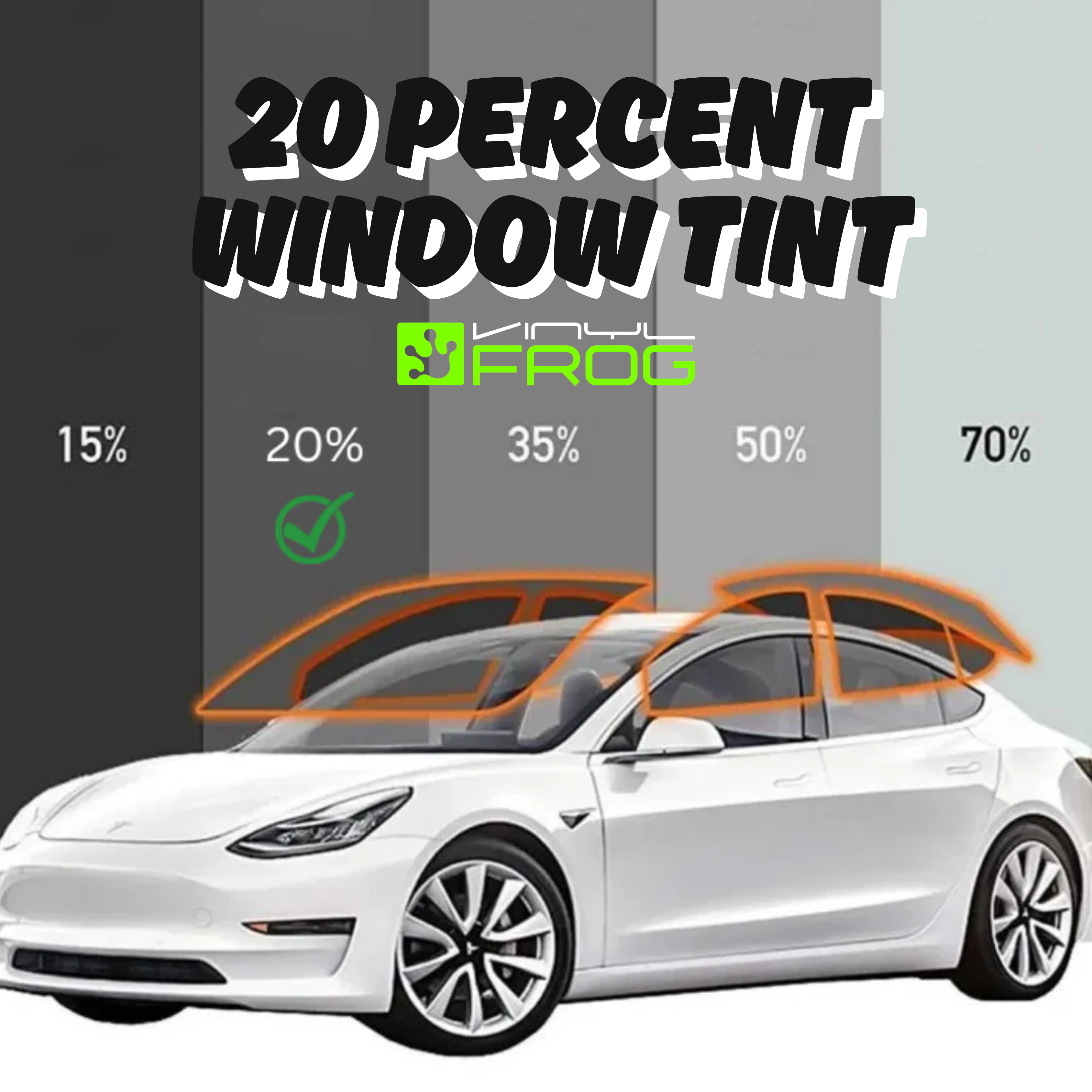
20 Percent Window Tint
Tinting Rule For Cars (Sedan, Coupe, or Compact Car)
- Front Windshield: A tint is permissible above the AS-1 line or within the top 5 inches. This should not be reflective and red or amber in color.
- Front Side windows: 25% VLT or it must allow more than 25% of light in.
- Back Side windows: 25% VLT or more than 25% of light should be allowed in.
- Rear windshield: Must allow more than 25% of light in or 25% VLT.
Darkest Legal Tint For MPVs (SUV or Vans)
- Front Windshield: Above the AS-1 line or within the top 5 inches, non-reflective tint is permissible.
- Front Side Windows: Just like any car, it should permit more than 25% of light to enter or 25% VLT.
- Back Side Windows: There are no specific restrictions for the back side windows. You can choose any level of tint darkness.
- Rear Windshield: There are no specific restrictions for the rear windshield. You can choose any level of tint darkness.

To install the window tint shade of your choice to the back side windows and rear windshield, the driver must ensure that the vehicle is equipped with wing mirrors on both left and right-hand sides. These should be so located that a driver can clearly see the highway through each mirror for a distance of at least two hundred feet to the rear of the vehicle.
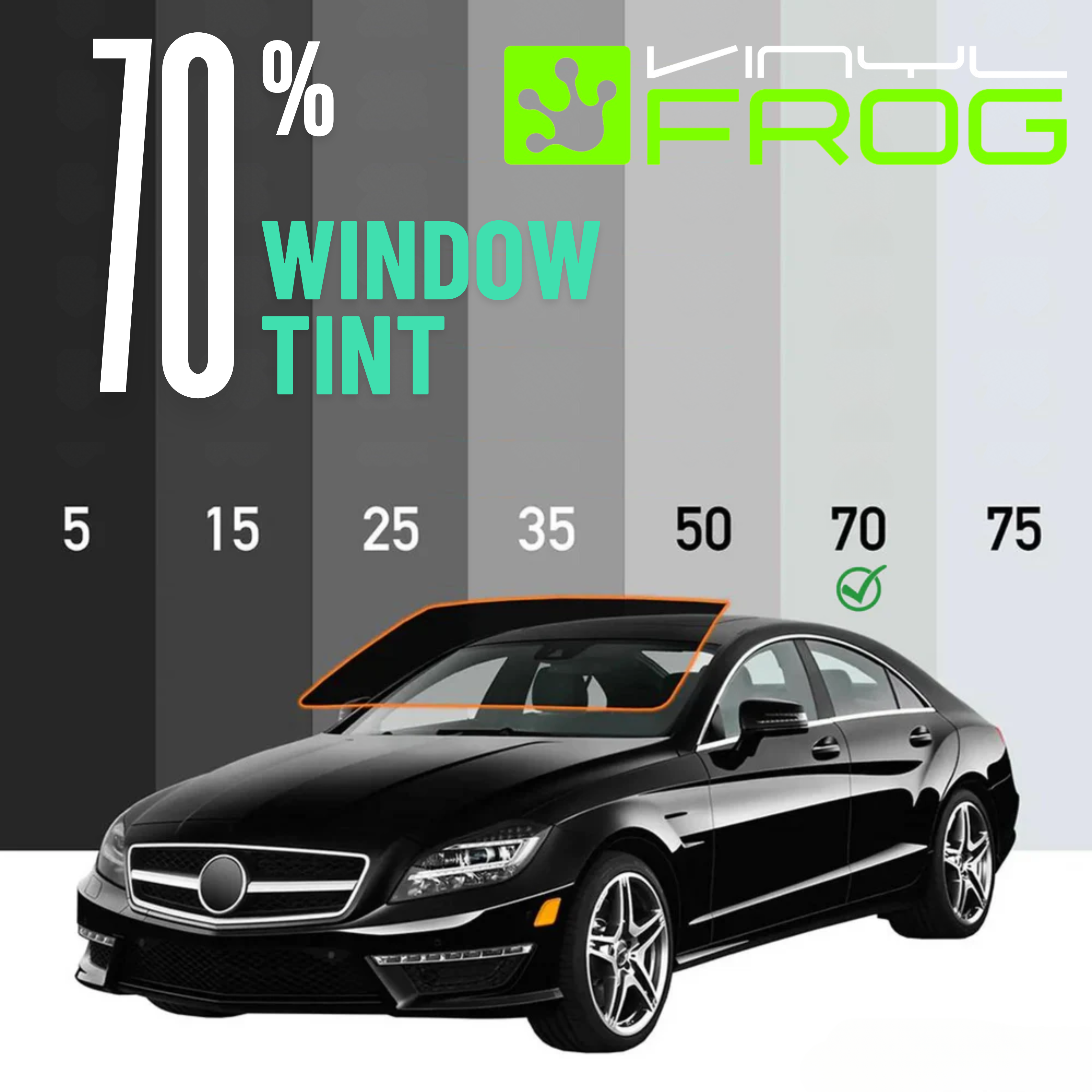
70 percent Window Tint: Legal, Clear, UV-Blocking
Oklahoma Tint Laws Regarding Reflectivity
High reflectivity window films are liked by many individuals, especially the silver reflective ones but these are not considered legal. This refers to the ability of the film to bounce back light. If the reflectivity is high, one will not be able to see inside the car, whereas the occupants of the vehicle can clearly see outside.

Tint films are designed with varying degrees of reflectivity to control the amount of sunlight and heat entering a vehicle. High reflectivity means more light is bounced away, resulting in a cooler interior and reduced glare. On the other hand, low reflectivity allows for better visibility and a subtler appearance. The Tint Laws in Oklahoma state the following regarding this:
- The tint on the windshield above the AS-1 line should not be reflective at all.
- For the front-side windows, back-side windows, and the rear windshield, the maximum allowable reflectivity is 25%.

Window Tint Near Me - Get A Affordable Window Tint Today
Other Regulations To Be Followed In Oklahoma
There are certain other rules that one must be aware of when deciding to tint the windows. These are:
- If the back window is tinted, dual side mirrors are required so that the driver can see the road behind clearly.
- There is no prohibition regarding the color of the tint for the side and back windows, however, red and amber should be avoided.
- The manufacturer is required to certify that the tint film is according to the reflectivity and transmittance requirements of Oklahoma.
- The tint manufacturer should also clearly state in bold in the sale contract that the film might be illegal in some states.
- These rules do not apply to the law enforcement vehicles owned by the state.
- No sticker on the window is required to identify legal tinting.
Medical Exemptions In Oklahoma Window Tint Law
Individuals who are required to shield themselves from the direct rays of the sun due to a medical condition are exempted from the above regulations. This includes specific health conditions, such as Lupus, Porphyria, Xeroderma Pigmentosum, Cockayne Syndrome, Albinism, Bloom Syndrome, and so on. Any other non-negligible photosensitive conditions are also considered.

Doctor Note For Window Tint
Such individuals are required to obtain medical exemptions for darker-tinted windows. It's advisable to consult a licensed physician and get a written attestation of their condition. They can get this exemption for a vehicle owned by them or in which they are a regular passenger.

Reach out to an official from the Oklahoma DMV to find out the possibility of obtaining a window tint medical exemption. Any person suffering from a medical condition can change the color or reduce the light transmitted through the side or rear windows of a vehicle according to the exemption issued by the Commissioner.
Penalty For Violating Tint Laws In Oklahoma
While window tint offenses in Oklahoma are not considered a felony, they are against the civil rules and if broken, a financial penalty is charged. The first time you might only be asked to fix the issue which means that you will have to get the nonpermissible window tint removed and pay a small financial penalty.

Best Car Window Tint - Buying Guide 2025
You will be fined more than a hundred dollars for each subsequent infraction. If you think of it in the long run, getting tickets time and again is going to cost you much more than opting for a legal window tint the first time. Therefore it is best that you abide by the laws and avoid putting additional financial strain on yourself.
Different Types of Window Tints
There are various types of window tints available, each offering distinct features and characteristics. These are:
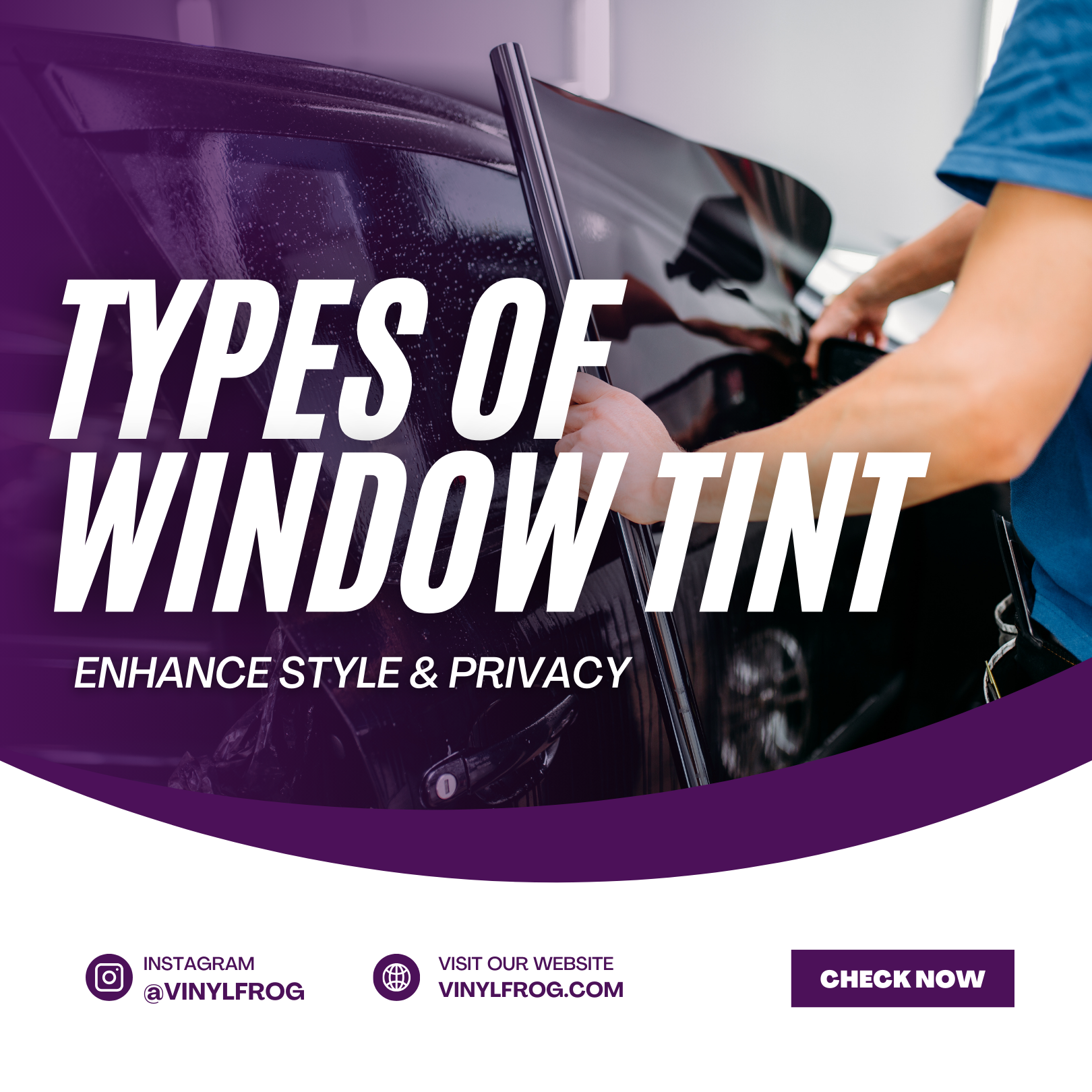
Types Of Window Tints
1. Dyed Window Tint
As the name suggests, this incorporates a layer of dye to absorb heat and minimize glare. It is an affordable option that provides a non-reflective appearance and effective protection against UV rays. However, it may experience fading over time due to prolonged exposure to sunlight, hence needing frequent replacement.

2. Metalized Window Tint
This scratch-free window tint incorporates metallic particles to reflect heat, enhancing both durability and heat rejection. It prevents the window from breaking down into tiny shards in case of an accident. However, there is a potential drawback. It might interfere with electronic signals like radio and GPS due to the metal content.
3. Carbon Window Tint
This tint utilizes carbon particles to resist heat without incorporating metal layers. It provides good heat rejection, does not interfere with signals, and offers a matte finish. While it is moderately more expensive than dyed tint, the benefits justify the cost.

4. Ceramic Window Tint
This tint features ceramic particles for exceptional heat rejection and UV protection. Known for high clarity and the absence of signal interference, ceramic tint is the premium option. It comes with a higher price tag compared to other types but it is definitely worth the money.
5. Hybrid Window Tint
Hybrid window tint combines elements from metalized and dyed tints, seeking to balance their respective strengths. The characteristics of hybrid tint include protecting your interior by fighting UV rays and offering sustainability.
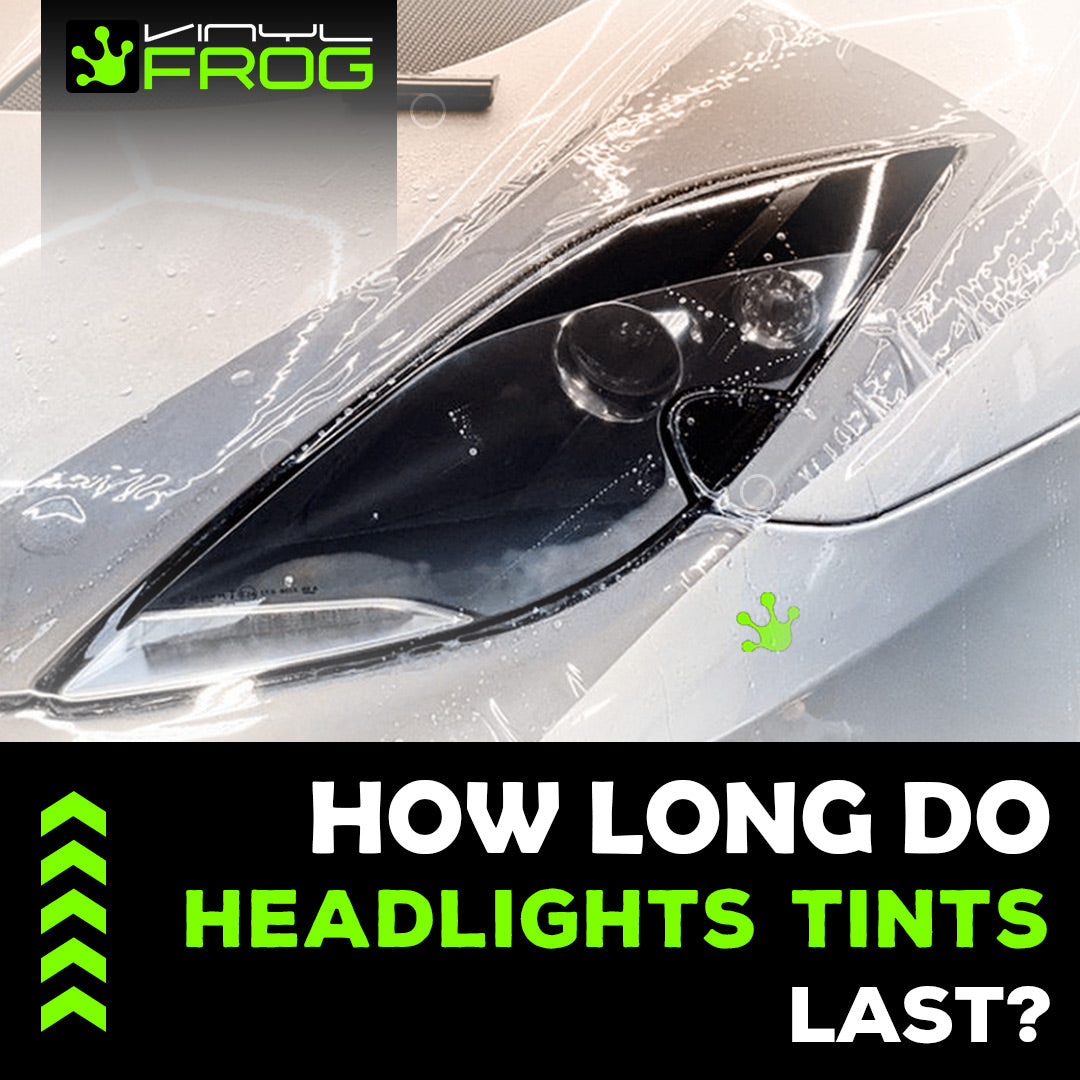
How Long Do Headlight Tints Last?
6. Crystalline Window Tint
Crystalline window tint employs multilayer optical film technology to provide high clarity while effectively rejecting heat. This premium option maintains visibility without a dark appearance, making it an excellent choice for those prioritizing both performance and aesthetics. However, it is relatively more expensive than other types. But given the pros, we can't complain.
Understanding the features and drawbacks of each type can help you choose the window tint that best suits your preferences and needs. These tints come in different VLT percentages so you can install the one that is according to the tint laws in Oklahoma.
Frequently Asked Questions
Final Words
Now that you are well aware of all the rules and regulations regarding window tint in Oklahoma, you can check out our massive collection at VinylFrog and choose the perfect fit for your automobile. All our films offer many benefits, from UV protection to increased privacy and improved comfort. So, stay updated, consult reputable sources, and make an informed decision to navigate the roads of Oklahoma confidently and legally.











